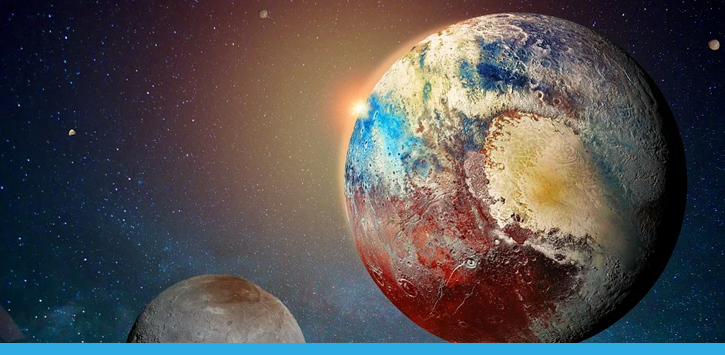On Feb. 18, 1930, Claude Toumbaugh discovered an astronomical body which was later named Pluto after the Roman god of the underworld by Venetia Burney.
In the time preceding Tombaugh’s discovery, astronomers knew there was an unknown object in space because of calculations of the planets’ masses, orbits, and distances from one another. This mysterious object was called Planet X. When Tombaugh shared his discovery, it was believed that Pluto was this Planet X. Though after collecting information on its size, this was discounted. From its discovery in 1930 until a meeting by the International Astronomical Union or IAU in 2006, Pluto was considered the ninth planet in the solar system.
Why is Pluto Not a Planet Anymore?
In 2006, the IAU met in Prague, Czech Republic. At the end of the conference, after many members had already left, it was said there would be a vote on whether Pluto would remain a planet. A majority voted that there should be criteria for what is considered a planet.
These three criteria were that the body had to travel in an ellipse around the Sun, the body must be massive enough that gravity gives it a nearly spherical shape, and it must have strong enough gravitational pull to clear its neighborhood. The first criteria basically says that the object must orbit the Sun, which Pluto does. The second commands that the body is large enough for gravity to make it shaped like a ball, Pluto also passes this requirement. The third mandates the object have enough gravitational ability to either pull debris to be a part of it or push it away from its gravitational field. This is the task that Pluto does not accomplish.
A name was given for objects that pass the first two tests but fail the third: dwarf planets. Estimates show there could be tens of thousands of dwarf planets, but the major ones include Pluto, Ceres, Makemake, Haumea, and Eris.
Months earlier, the space probe New Horizons was launched. New Horizons reached Pluto in 2015, but it did not stop there and has continued exploring previously unexplored space. We have new images and hypotheses about the dwarf planet. It is now known that Pluto has liquid water underneath its surface.
Should Pluto be Reclassified as a Planet?
There have been arguments about the classification of Pluto as a planet since before the IAU’s decision in 2006. Neil deGrasse Tyson is against Pluto planethood, which he explains and defends in The Pluto Files. This is still a debated topic. In 2019, there was a debate on this topic hosted by the Philosophical Society of Washington. This debate was between Alan Stern, arguing for Pluto’s planethood, and Ron Ekers, arguing the current definition should be kept. This was a livestream that could be watched on Youtube, which I did. It ended with an audience poll which overwhelmingly said Pluto should be considered a planet.


This was really a interesting read, I loved this article! 🙂